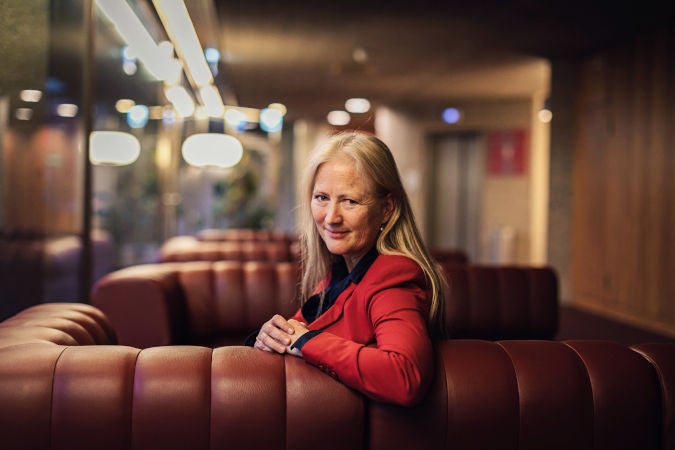In the words of Sascha Gabizon: “Gender equality is essential for our economy, for our wellbeing, and for our future”
Date:

Sascha Gabizon is the Executive Director of the Women Engage for a Common Future (WECF) and member of the Global Civil Society Advisory Group for Generation Equality. She attended the 25th year regional review meeting of the Beijing Platform for Action for the UN Economic Commission for Europe (UNECE) and co-organized the preceding Civil Society Forum. Ms. Gabizon shares her views on what feminists around the world hope to achieve in terms of gender equality and women’s rights.
At this important meeting we have people representing countries from Central Asia all the way to Canada and North America, including Turkey and Israel, and all the way up to the Scandinavian countries. And from all these countries we have a very wonderful diverse group of 500 feminists.
About 30 percent are young feminists, we have elderly feminists, we have people who work in the most diverse areas. This is all about reducing discrimination against women and girls in all their diversity.
We have been working hard and bringing together an amazing sea of fantastic ideas for how we should speed up gender equality because we are so far behind. We have not achieved enough during the last 25 years and we cannot wait another ten generations before women and girls have gender equality in their lives.
So that’s why we are here – to prepare and be ready to talk with governments about the next strong steps that they need to take in partnership with civil society.
We are addressing the key issues in the Region. We have conflict, war, post-conflict countries in this Region. And, we have countries who have done amazing work on women, peace and security. The Region is also very diverse when we look at the migration and we know that we have many learned lessons. For example: what should be done to support migrant women? How do we reduce discrimination against them and how do we improve the conditions of shelters when they arrive? So many of these topics might not have been mentioned so clearly in the Beijing Platform for Action.
We are also are addressing the issue of women and media, which was in the Beijing Platform for Action, but now we are dealing with new media. So, we are talking about cyber harassment, how do we deal with hate speech in the media against women in politics, young women, against women who are different because they have a different sexual identity. We are also talking about how we work in solidarity as the feminist movement to try and find solutions that would reduce hate speech, sexism and discrimination in the media.
This event is crucial, because we know that we are at risk of moving backwards. We are experiencing a pushback against women’s rights and gender equality and we know that we need to mobilize all the like-minded countries which are saying: “No, people, achieving gender equality is essential for our economy, for our wellbeing, for our future.”
What we are hoping to show and to achieve is that with this wide group of 500 civil society representatives, we can come and speak to the governments and tell them: “We are here, we are listening to you, we want you to take extra steps, it is not enough, we need to go further than we are now.”
What I hope is that everybody will come out of this meeting feeling like a feminist and that there will be this big sense of solidarity between women and men, government and civil society, the younger generation and the older generation."